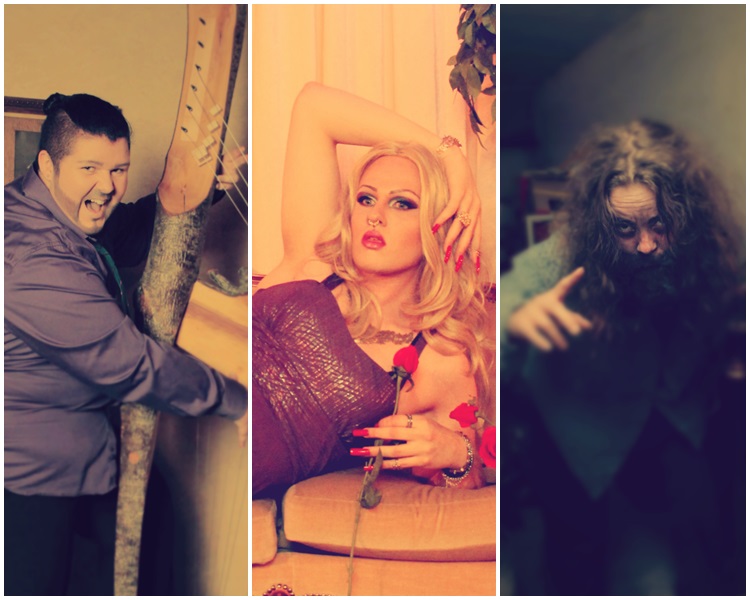The annual Icelandic Drag Competition will be held in Gamla bíó on Wednesday, August 5th at 8pm. Georg Erlingsson Merritt has been the competition’s coordinator ever since he won the title Iceland’s Drag Queen in 1998. We talked to Georg about the contest, censorship and possible reasons why the Icelandic drag scene isn’t nearly as vibrant as it used to be.
There has been a lot of discussion recently about the censorship drag queens are facing today. Just recently organizers of a Pride event in Scotland banned drag queens from performing on the grounds that they might be “offensive” to the trans community (despite the fact that drag queens have been closely associated with Pride celebrations for most of their history). And then later on lifted the ban because they were harshly criticized. What are your thoughts on such measures?
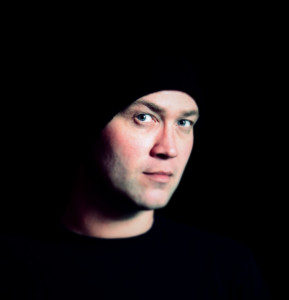
“First of all let me say that drag is in no way demeaning towards transgender people. Transgender people even participate in drag. That doesn’t say that drag queens and kings should ever be perceived as transgender people.”
“Regarding the incident in Glasgow, I sincerely believe it was merely based on a misunderstanding, and the media chewed on it.”
“But then of course there are and always will be those who want to misinterpret drag. But if you look at it in a historical context it becomes clear what drag is all about. It has existed ever since women weren’t allowed on stage in theatres and men interpreted their roles (drag is an abbreviation for Dressed As Girl). Therefor drag is mainly a form of art. But drag is also a fighting tool. And by saying that I’m of course referring to the Stonewall riots in the late sixties, when drag queens rose up against oppression. That’s when drag also became a weapon.”
But what about the dress-code in the Reykjavík Pride Parade? The rule that says you can’t dress up in a costume of a culture of people who’ve systematically been oppressed by another group?
“I understand why the committee makes those kinds of rules,” Georg says, “but at the same time I feel that they sometimes contradict themselves. For example I know for a fact that certain queens have been told off for crossing certain lines, while at the same time the committee has imported foreign artists who have gone way further.”
“Saying that I wished that the committee would bring more attention to Icelandic drag artists. Support them in a better way. In my mind there is no question about it that they should be a proper part of the Pride festivities.”
“If a performer is considered to be on the verge of doing a blackface…then the act would have to be examined.”
Don’t these sort of does and don’ts go against the idea of drag? Isn’t it a part of game to a be a little cocky, shocking and even offensive – to EVERYBODY – but in a witty, stylised kind of way?
“Totally. That’s the whole point. A drag queen must have a freedom to shock and the audience must be aware that drag is “a ultrapersona”, an exaggerated 200% version of someone – it’s not real. Drag is an escape from reality.”
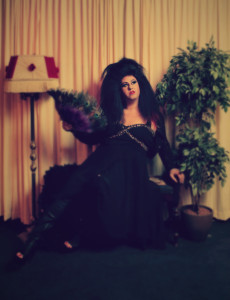
So does the Icelandic Drag Competition have any rules about these sort of things?
“There is one rule we are very strict about: the rule that says cis-gender contestants can not interpret their own gender in the competition. I’ve received requests from both women and men wanting to interpret their own gender and always denied them. Ok, it might be fun to see such an act and everything. I mean just look at Saturday Nigh Life, for example, where a bunch of people are doing their-own-gender-drag. However I just don’t think that’s drag. Besides adding those kinds of acts to the competition would only confuse guests. And there’s enough confusion already!”
When you say cis-gendered contestants, does that mean that trans people can take part and exaggerate their own gender?
“Yes, of course trans people can compete, and they have the artistic freedom to portray the gender they want to interpret.”
But what happens if a contestant crosses certain lines? For example, would blackface ever be approved?
“Blackface, now that is a very flammable subject. The Icelandic Drag Competition does not in any way support the idea of it. But still, every single thing that’s done in it has a purpose. If a performer is considered to be on the verge of doing a blackface, or something equivalent to that or something that could be interpreted that way, then the act would have to be examined. Because of how provocative drag is there probably would be a point to it and that point should be taken into consideration. Personally I find it hard to believe that a contestant would intentionally want to humiliate a minority. Saying that I still want to make it abundantly clear that I’m totally against blackface.”
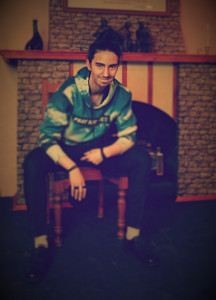
But otherwise the contestants get artistic freedom and are trusted for sensible decision-making?
“Yes, we give our contestants artistic freedom, but still it’s censored. We go through the performances beforehand, but if someone decides the last-minute to add something to their act it’s hard to stop them on stage. That’s something that has to be dealt with afterwards. The judges have a list of instructions, so if a contestant crosses some serious lines, they lose points, which obviously decreases the odds of winning.”
Again Georg reminds us that drag is meant to provoke. “Lines will be crossed” is a sentence that usually opens a dragshow,” he points out. “So when buying a ticket for a drag show you must always be prepared to be shocked. The competition is no exception and the contestants have a certain freedom that comes with it being a closed event.”
Before the Icelandic drag scene used to be vibrant, but it somehow dropped off. What happened?
“If it wasn’t for the Icelandic Drag Competition the drag scene wouldn’t exist in Iceland,” Georg answers. “It’s as simple as that. But then again, one can speculate what would happen if the competition vanished. Maybe the drag scene would change, grow or shrink, be altered in some way. Or just disappear. Though I personally think that there will always be drag because people like to pretend that they’re someone else. They like to do something out of the ordinary.”
“…drag is a form of art. But also a fighting tool.”
“But to answer the question, then part of the reason might be because of how queer people are blending in with the rest of society. It’s of course great how accepted we are now, but as a result we’re becoming invisible. Seizing to exist as a sub-culture. Which is sad because we’re loosing our cultural heritage and sad because a part of the queer community is criticizing those who want to pay respect to that heritage by making it visible. For those reasons I think it’s important that we don’t lose drag from our scene. Because drag is a way to show that we’re not afraid to stick out from the norm.”
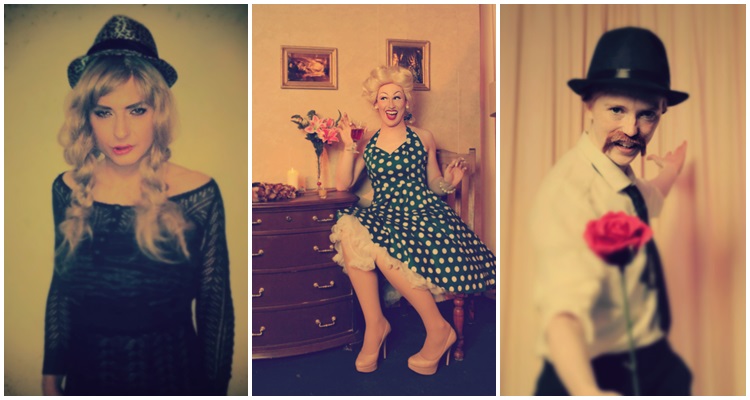
Going back to the Icelandic Drag Competition, what do you think of this year’s contestants?
“It’s a diverse group. The performances are very different. We have four kings and four queens fighting for the two titles. We also have a great presenter, Bjarni the Magician. It will be very exciting to see him in this field.”
“I’m also glad that the competition is finally back in Gamla Bíó, the old Icelandic Opera building, which is great news. It’s not too big and you can bring your glass of wine into the arena! So we’re happy to bring the fun back into the show. It’s greatly planned but will be spontant as well. And since we’re in a smaller house, we don’t have endless tickets. So book early!”
We can’t let Georg off the hook without asking what it takes to become a good drag queen or king?
“Self confidence. Whether you have it in daily life or you gain it in drag, in the end it’s the most important thing.”
Top photo (contestants from left): Handsome Dave, Loa Chlapp and Festus Ford.

